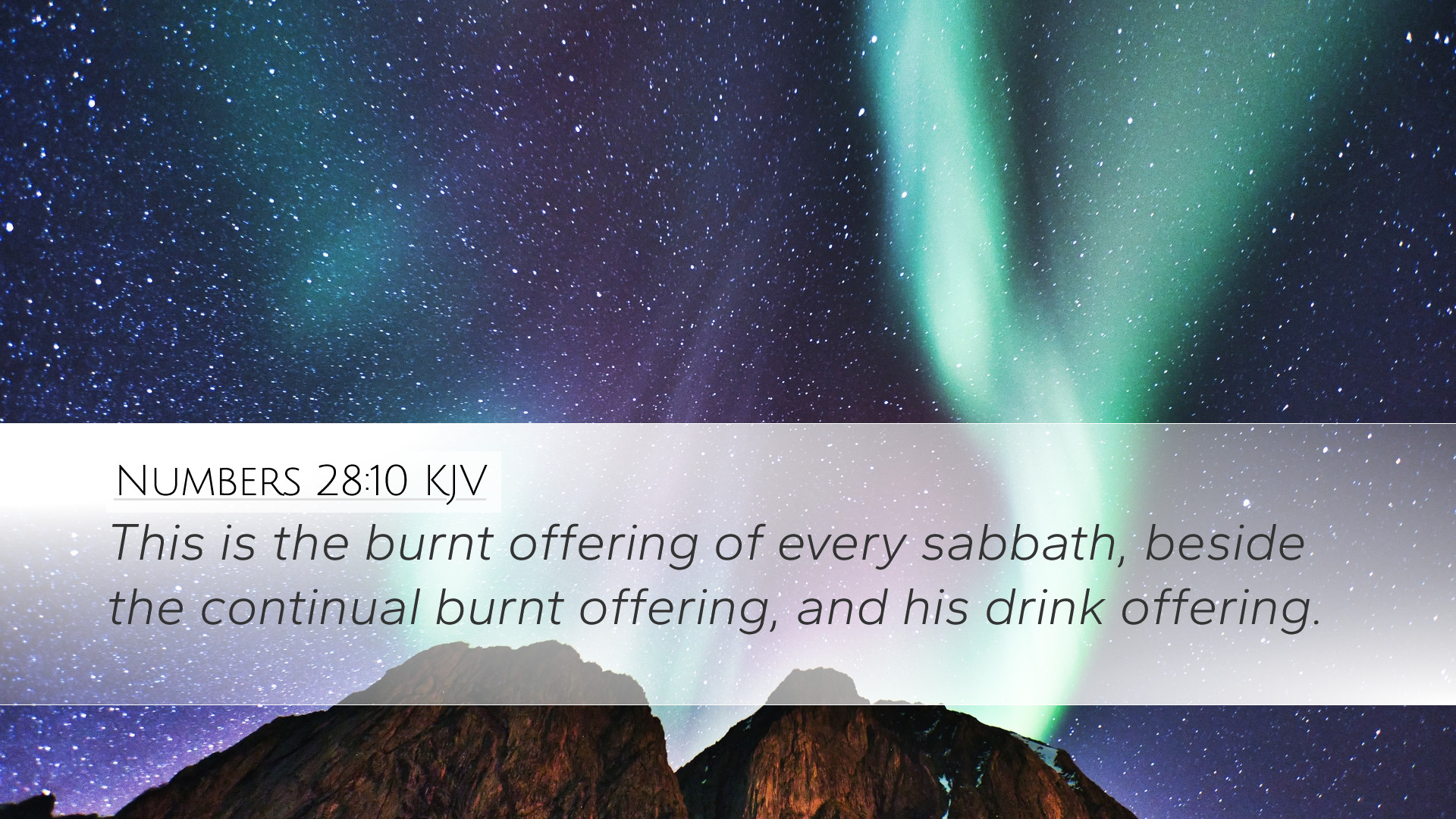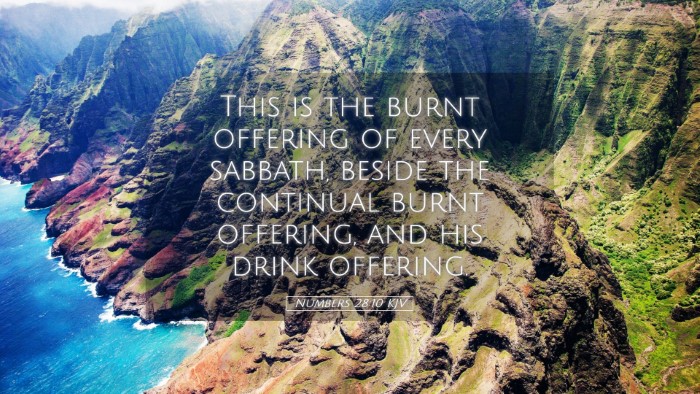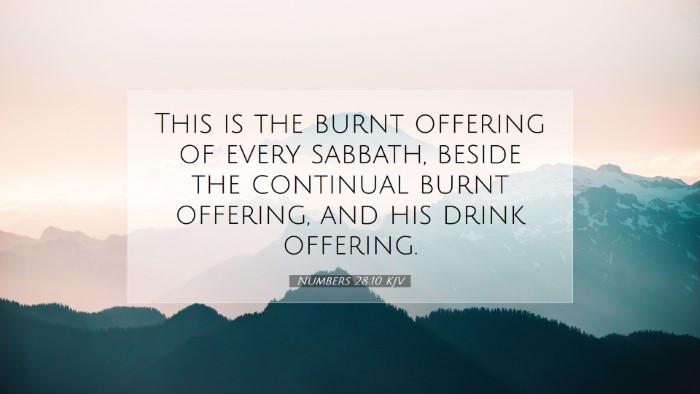Commentary on Numbers 28:10
Numbers 28:10 states: "This is the burnt offering of every Sabbath, beside the continual burnt offering, and his drink offering." This verse, while seemingly straightforward, addresses significant elements of worship, sacrificial offerings, and the rhythm of Israelite life and faith.
Contextual Understanding
The book of Numbers, situated in the Pentateuch, focuses heavily on the organization of the Israelite community as they traverse the wilderness. This chapter emphasizes the importance of sacrificial offerings, particularly highlighting the Sabbath, which is a foundational aspect of Israel’s relation to God. The Israelites were to observe the Sabbath as a day set apart for rest and worship, an idea deeply embedded within Jewish life.
Significance of the Burnt Offering
According to Matthew Henry, the burnt offering represents a complete surrender to God. This offering is entirely consumed by the fire, symbolizing the worshipper’s total dedication. It serves as a vivid reminder that all aspects of life should be offered to God, a theme echoed throughout the scriptures.
Albert Barnes elaborates on the notion that the Sabbath burnt offering is a special expression of gratitude and acknowledgment of God's sovereignty over creation and time. By incorporating this offering into their Sabbath observance, the Israelites recognize the day as one set apart for divine contemplation, rest, and the culmination of their weekly efforts.
The Role of the Sabbath
The reference to the Sabbath in this verse highlights its centrality to Israel's worship life. Adam Clarke notes that the Sabbath was not merely a day of rest but a vibrant expression of faith and reliance on God’s provision. The burnt offerings on the Sabbath served as a reminder for the people to cease from labor, both physical and mental, and to focus their hearts and minds on God’s goodness.
Comparative Significance of Offerings
This verse distinguishes between the continual burnt offering and the Sabbath offering. Matthew Henry explains that while the continual burnt offering represents daily worship, the Sabbath offerings mark a unique time of collective worship that allows the nation to pause and reflect on God's relationship with them.
Albert Barnes emphasizes the necessity of these offerings to maintain spiritual integrity within the community, arguing that regular sacrifices were vital for ensuring that the people remained in a state of covenant fidelity with God. The Sabbath offerings thus serve as a spiritual reset for both individuals and the community.
Theological Implications
This verse has rich theological implications. The burnt offering symbolizes atonement and reconciliation. Adam Clarke points out that through these offerings, the Israelites were kept in fellowship with God, presupposing the need for sacrifice due to humanity’s imperfections. In a New Testament context, these Old Testament offerings foreshadow the ultimate sacrifice of Jesus Christ.
Application for Today
For modern believers, this verse serves as a reminder of the importance of structured worship and sacrificial living. Henry suggests that just as the Israelites had designated times for worship, so too should Christians establish rhythms in their lives that prioritize God above all else.
The reminder of a weekly Sabbath can lead to spiritual rejuvenation. Barnes asserts that the act of dedicating time specifically for worship allows believers to recalibrate their lives, ensuring that God remains the focus amidst the chaos of daily living.
Conclusion
In summary, Numbers 28:10 encapsulates critical theological and practical insights for both ancient Israel and contemporary believers. It presents the importance of offering both daily and Sabbath sacrifices as acts of worship that signify a reciprocal relationship between God and His people. Pastors, theologians, and biblical scholars can draw from these rich insights to deepen their understanding of worship and to encourage community practices that honor God.


